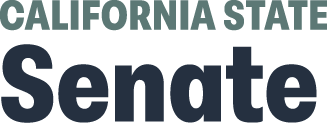your legislators voted on CSBA’s priority legislation.
A significant number of bills considered this year affect education and necessitate a look at how your legislators voted on critical bills impacting LEAs, boards of education and the students they serve.
To evaluate each senator and assemblymember’s vote records, CSBA scored their favorable vote percentage of floor votes on 29 bills. Each of these bills are measures that CSBA actively supported, including those CSBA sponsored or actively opposed in 2023.
- Each of the 29 bills was heard on the Senate and Assembly floors, giving each legislator the opportunity to vote.
- Instances where a member did not record a vote, either due to an abstention or an absence at the time of the vote, do not count as a favorable or unfavorable vote.
- A major theme in 2023 was labor legislation that would significantly infringe on local control over hiring, disciplinary and other human resources decisions. CSBA opposed these measures, but most were passed by the Legislature and the impact of the higher-than-usual ratio of these types of bills is reflected in this year’s scores.
Among the 29 bills your legislators are scored on, CSBA is recognizing specific votes on five of its sponsored bills:
- Assembly Bill 1023 (Papan, D-San Mateo): Increases cybersecurity support for school districts by requiring the California Cybersecurity Integration Center (Cal-CSIC) to include a representative from the California Department of Education (CDE) and coordinate information sharing with school districts, county offices of education and charter schools.
- Senate Bill 765 (Portantino, D-Glendale): Provides immediate help to schools during the teacher shortage by making it easier to waive the 180-day mandatory waiting period and increasing the salary earning cap LEAs must observe before hiring a recently retired teacher.
- AB 417 (Bennett, D-Ventura): Provides needed follow up to 2022 legislation that authorized county boards of education to select a student in a district school to fill a position on the county office board reserved for a pupil. In the absence of a petition for student representation, AB 417 permits a county board to appoint one of its own students from a school directly under its jurisdiction to the position.
- AB 483 (Muratsuchi, D-Torrance): Expands access to school-based health and mental health services and increases funding for school districts by improving the Medi-Cal Local Education Agency Billing Option Program (LEA BOP). The bill modifies and imposes new requirements related to timelines, reporting, technical assistance, stakeholder engagement and guidance for LEA BOP.
- AB 557 (Hart, D-Santa Barbara): Extends indefinitely the authority for school boards to hold meetings virtually during states of emergency.
CSBA is also highlighting legislators’ votes on two bills that the association opposed, both of which were passed by the Legislature but ultimately vetoed by Gov. Newsom:
- AB 1699 (McCarty, D- Sacramento): Would have mandated “right of first refusal” for classified staff hiring policies for all LEAs.
- SB 433 (Cortese, D-San Jose): Would have removed the authority of a duly elected school district board to render personnel decisions concerning classified staff and placed it into the hands of an unelected hearing officer.
- Each of these bills is called out in the scorecard, allowing you to easily review how your legislators voted on CSBA’s priority legislation.
Thanks to dedicated advocacy, CSBA’s package of sponsored legislation met with a 100-percent success rate over the course of 2023, with Gov. Newsom signing all five of the CSBA-sponsored measures highlighted in the scorecard. Two other CSBA proposals to provide adequate and stable funding for county office-run juvenile court and community schools and to enhance collaboration between county mental health agencies and school districts were incorporated into the state budget and Gov. Newsom’s proposed mental and behavioral health system overhaul that will appear on the March 2024 statewide ballot, respectively.
CSBA also secured the veto of the two critical labor bills highlighted in the scorecard. CSBA members were key to this victory, responding in record numbers to the call to action and generating more than 500 individual veto requests sent to the Governor regarding AB 1699. CSBA also mobilized alongside a large coalition of school districts and educational advocacy organizations to oppose the bill and successfully led a coalition of statewide K-12 and community college associations to secure the veto of SB 433 as well. Persistent advocacy was the key to turning the tide against a wave of legislation that would have significantly eroded local control over hiring, disciplinary and other human resources decisions.
The Legislature returned to Sacramento on Jan. 3, 2024, entering into a contentious presidential election year with many changes in state leadership in play. Assemblymember Robert Rivas (D-Salinas) is the new Speaker of the Assembly, marking the first time in over fifty years that the Assembly has been led by a member from a rural district. Sen. Toni Atkins (D-San Diego) will also be termed out in 2024, and in late August Senate Democrats chose Mike McGuire (D-Healdsburg) as the next president Pro Tem of the Senate.
The changing makeup of the state Legislature is also shifting the landscape for education in other ways. There has been significant turnover in both houses in recent years, and of the 120 members of the Legislature who voted on the Local Control Funding Formula (LCFF) in 2013, approximately 13 remain in the current legislative session. Few will be left after 2024 and schools will need to contend with the challenge of a Legislature that may be less invested in LCFF.
At the time of this writing, education stakeholders are waiting to see which of the legislative proposals placed on hold in the first year of the 2023–24 legislative session will resurface and which new proposals will rise be introduced. In the interim, CSBA hopes this scorecard is of use in evaluating your legislators’ work over the last year and as a resource for your advocacy in 2024.


%







































































%





































![]() republican
republican ![]() democrat
democrat ![]() independent
independent